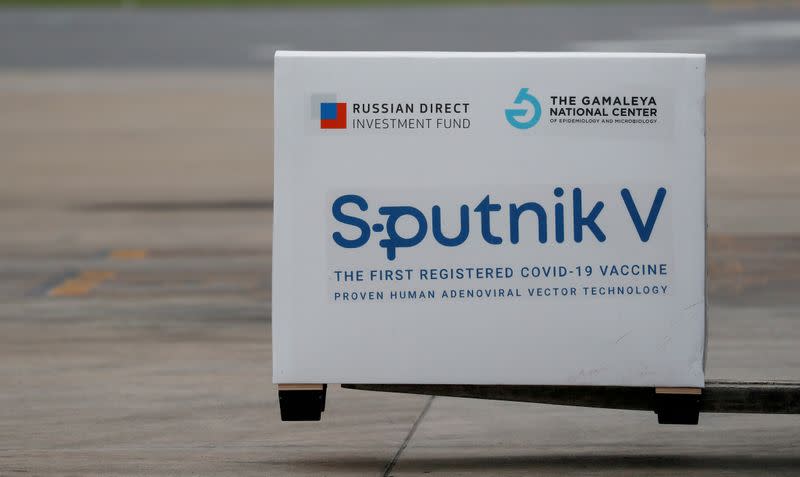CARACAS (Reuters) – The first 100,000 doses of the Russian Sputnik V coronavirus vaccine arrived in Venezuela on Saturday.
In a tweet, President Nicolas Maduro said medical and health personnel were the first to receive the vaccine, “given their exposure to COVID-19.”
The vaccines arrived on a special flight from Moscow at Caracas International Airport with Conviasa Airlines, the public service of Venezuela, according to witnesses and images from Reuters.
“Here is the vaccine to serve the most vulnerable sectors with the highest priority, for example health professionals; it is a vaccine that addresses the most serious cases of patients with diseases,” said Vice President Delcy Rodriguez.
“This is a vaccine that wants to reduce the transmission of the community,” she added.
Maduro had earlier said after health workers ‘vulnerable sectors’ would be next, followed by teachers.
The Venezuelan government has said for months that the South American country will receive ten million doses of Sputnik V vaccine, although the manufacturer of the vaccine has not confirmed the figure.
In addition to Sputnik V, the mission chief of the Pan-American Health Organization said last week that between 1.4 million and 2.4 million doses of AstraZeneca Plc vaccine have been reserved for Venezuela. At $ 10 per dose, the vaccines would cost between $ 140 million and $ 240 million.
Venezuelan government officials and opposition leaders met to discuss the purchase of coronavirus vaccines through the international COVAX program with cash frozen in the United States by economic sanctions, but no agreement was reached.
Maduro appeared on television on Thursday night, saying the government was working on a $ 300 million deal with the Pan-American Health Organization for vaccine supplies, but did not provide details.
Authorities on Friday reported 132,259 cases of coronavirus in the country and 1,267 deaths, but medical unions and opponents said the figure was likely higher.
The government has approved a relaxation of the national quarantine for two weeks for the next carnival holiday.
(Reporting by Sarah Kinosian; Editing by Jonathan Oatis)
